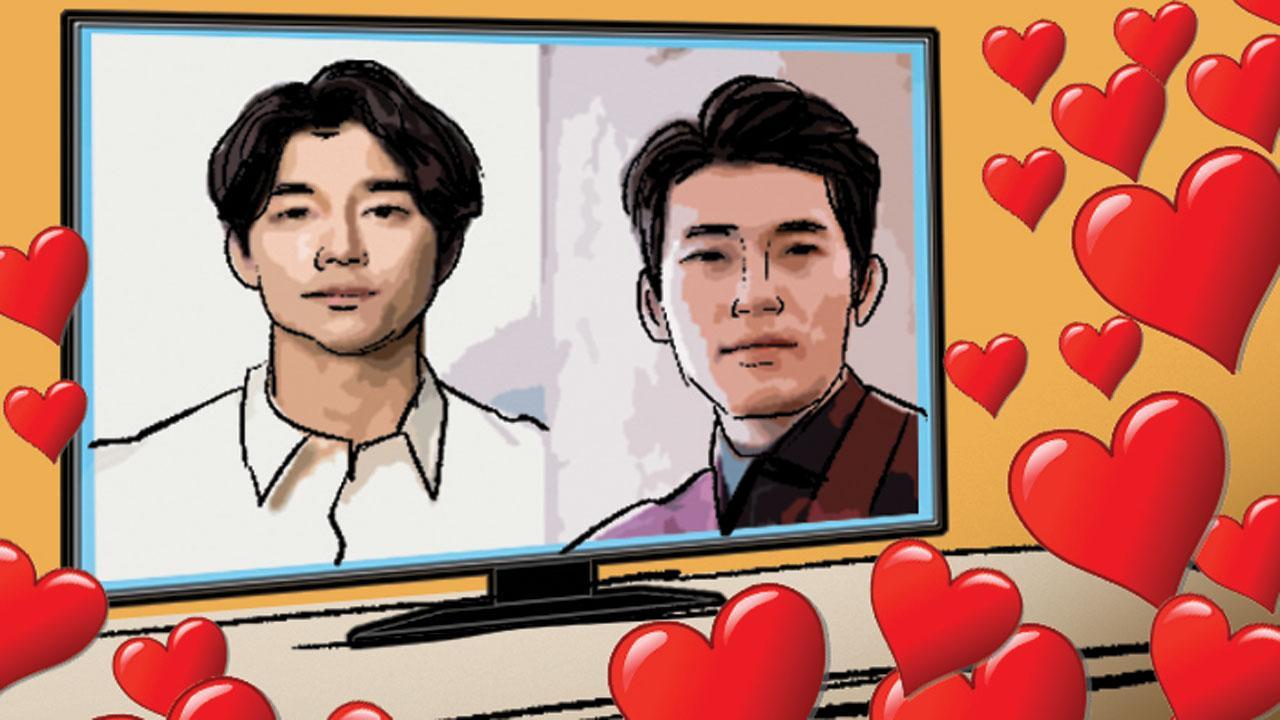Food is a central way K-dramas demonstrate and celebrate connection

Illustration/Uday Mohite
![]() Last week, I spent a morning with students at Meta Litfest discussing a mutual love: K-drama or Korean drama series. Some roll their eyes at K-drama as being escapist, from their prisons of realism and so-called rationality. K-dramas come wrapped in the unreal beauty of their stars, melodrama, humour and voluptuous fantasy. They are written with a novelistic attentiveness to human relationships and draw us into a world saturated with emotion. Humiliation, abandonment, failure, loneliness are feelings we are taught to conceal and associate with shame. The shows confront these deepest wounds on our behalf, often embodied in an orphan figure (once common in Indian films too)—someone alone or neglected—who journeys to kinship, caring, affection and love.
Last week, I spent a morning with students at Meta Litfest discussing a mutual love: K-drama or Korean drama series. Some roll their eyes at K-drama as being escapist, from their prisons of realism and so-called rationality. K-dramas come wrapped in the unreal beauty of their stars, melodrama, humour and voluptuous fantasy. They are written with a novelistic attentiveness to human relationships and draw us into a world saturated with emotion. Humiliation, abandonment, failure, loneliness are feelings we are taught to conceal and associate with shame. The shows confront these deepest wounds on our behalf, often embodied in an orphan figure (once common in Indian films too)—someone alone or neglected—who journeys to kinship, caring, affection and love.
ADVERTISEMENT
In the cult show Crash Landing on You, an entire North Korean village becomes a loving community for a South Korean woman, snobbish but alone. Her intimacy with a handsome soldier who shelters her is romantic, but also compassionate, featuring a scene where he braids her hair with a parental tenderness. In Start-up, an old hard-up woman shelters an orphaned young man in her small shop, before he sets off to make his way in the world. Each of us is a start-up who needs the angel-investment of loving care, not just venture capital. In Guardian, a man-god marooned in immortality across eras is, as the EE Cummings poem goes, “made of nothing but loneliness”, for he must repeatedly watch the people he loves go from childhood to old age and then death, while he remains ageless and alone, ridged with loss. In My Liberation Notes, a woman in a dead-end job and an alcoholic, form a piercing, unsettling relationship when she says to him: Love isn’t enough. Worship me. In Crash Course in Romance, a man who is an efficient success-machine cannot eat—until he re-encounters food once given to him at his loneliest moment.
Also Read: Kiss and dress up
Food is a central way K-dramas demonstrate and celebrate connection. Elders pick a choice morsel of meat and place it on younger people’s plates. Friends avidly anticipate drinking and eating pork rinds together. People cook each other porridge when ill. In one show a woman who is advised to play hard to get and keep men anxious asks: What’s so great about being anxious and going crazy? You wouldn’t feed someone in such a miserly way so why do it in love?
Why indeed? Why not love without shame? Whatever the genre, K-dramas respond strongly to this question, without ever presenting a single answer. In mythic, archetypal terms, they mirror our inner lives and provide cathartic journeys. Romantic loves are embedded in a spectrum of love (and attendant conflicts)—affection, compassion, care, friendship, kinship, filial devotion. Self and the world, intertwined, for one love is difficult without the others. Such stories allow us to dwell on the meaning of our own emotions in our way, offering a poetic privacy to understand ourselves, others and relationships. The current public languages of emotion—trauma, triggers, perfect healing, consent—while important, risk homogenising the heterogeneity of everyday emotional complexities.
Perhaps if we could acknowledge these emotions more, we might not need to insist on hugging cows (even if, consensually) on Valentine’s Day (or merely mock those who do), but ask for the hugs we need ourselves. By the way, today is Hug Day on the V-day calendar. #JustSaying
Paromita Vohra is an award-winning Mumbai-based filmmaker, writer and curator working with fiction and non-fiction. Reach her at [email protected]
 Subscribe today by clicking the link and stay updated with the latest news!" Click here!
Subscribe today by clicking the link and stay updated with the latest news!" Click here!







